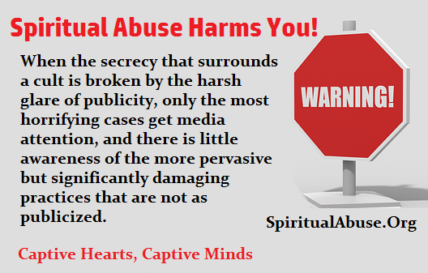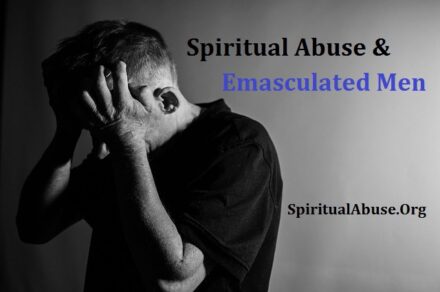Besides hearing of instances of alleged sexual abuse in a Colorado United Pentecostal Church that were not reported, I have heard from several former members as to how people in leadership there, including licensed ministers, have conducted themselves. I’ve seen one person refer to former members as the ‘Walking Wounded.’ Even though the Bible shares in several places how believers should be slow to anger, it appears some in leadership have chosen to repeatedly, and for years, display the works of the flesh instead of the fruit of the Spirit (Galatians 5). (See Proverbs 14:29, 15 & 29:11, James 1:19-20, Ecclesiastes 7:9, Colossians 3:8.) The apostle Paul instructed Titus about elders among fellow believers and wrote in 1 Titus (NASB):
7For the overseer must be above reproach as God’s steward, not self-willed, not quick-tempered, not addicted to wine, not pugnacious, not fond of sordid gain, 8but hospitable, loving what is good, sensible, just, devout, self-controlled, 9holding fast the faithful word which is in accordance with the teaching,
This is part fifteen in a series of articles and part two of the focus on a Colorado church. This is a compilation of allegations from numerous former members against the leadership of this church and the reports cover a span of many years.
I firmly believe that if a minister does not have the heart of a servant, as Jesus taught and showed by example, they should not hold license. Even Jesus himself did not come to be served but to serve others. Ministers and pastors are not supposed to be waited on and catered to by members of a church. They should not be elevated to a place where their actions cannot be questioned, nor should they live extravagantly on the hard earned money of members, when many of those people go without things.
Should ministers seek to have a table at church banquets where they are set apart from non-ministers and have church members appointed to only serve them and their needs? Where did ministers get the idea that they are separate from other believers in the body of Christ and shouldn’t spend much time with, or get close to, them? Did not the Pharisees in the New Testament act similarly?
Should members be expected to clean a pastor’s personal home because the church is having a conference (of course without being paid)? What about members who work for weeks under fear and intimidation on personal parties and anniversaries for the pastor and his family? Is it proper to remove members from ministries because they get behind in paying pledge money for such anniversary services? I cannot see David Bernard, the General Superintendent of the United Pentecostal Church, condoning such actions.
Should a pastor and his family live quite lavishly while there are many church members who are having a tough time making ends meet and while some ride a bus to services as they have no vehicle, while the pastor and his wife drive very expensive cars? Should the pastor and his family expect members to purchase them expensive gifts like a top of the line Jacuzzi or a baby grand piano or request that members help send them on exotic trips? It’s been said that some in the church have been told that “the least we can do is give him our money.”
Why would there be a hidden TV behind a wall panel in the living room (that was made to look like it was the mantle) during a time when UPC licensed ministers were forbidden to own one and all the while preach against it? In addition, why would there be a second TV in the basement with many Disney and other movies for the grandchildren? I have found the whole affirmation statement to be such a farce as through the years I have heard of various ministers signing the document and yet not abiding by it. Or making changes to it or adding a note that essentially nullifies it and these are accepted by the organization.
Should a pastor’s wife, now a senior pastor’s wife, be verbally abusive year after year to church members who volunteered to be in a seasonal church production, belittling them to the point where they are left in tears? One person shared they had to take Xanax for three months to make it through all the rehearsals due to her behavior. This woman has been described by more than one former member as ‘cruel,’ ‘vicious’ and ‘manipulative’. Some members were more afraid of what the pastor and his wife thought than God.
What about a PK, now a pastor’s wife, who regularly scolds choir members and even allegedly physically pulled a woman out of choir for failure to perform a movement she wanted, which the woman was incapable of doing due to the restricted room she had to work in. This leader took the choir member to the pastor’s office and allegedly lied about physically assaulting her. Should a person be screamed at for missing a cue? The fruit of the Spirit is severely lacking in such a person.
Love people. Respect them, serve them, and care for them. Ultimately, the only acceptable motive and the only successful method of leadership is love. – David K. Bernard, Spiritual Leadership article in the November 2018 edition of Pentecostal Life.
Should a visiting minister demand money and anything of worth to be handed over to the church under the guise of obtaining a blessing, especially in a church that already had plenty and was not suffering financially? Some who didn’t have cash left jewelry, shoes, perfume and other valuables on the altar. When one woman regretted giving her wedding ring, she allegedly called the church the next day to get it back and was told it was gone.
Does a pastor have the right to demand that a future wife goes to the husband’s church when two people are planning on marrying (done in order to keep members in the church)? How is it any of his business? Should a pastor be telling church members that he forbids them to have interaction with anyone who leaves the church or to not attend a new work that has started nearby?
Should a pastor use intimidation or guilt to manipulate members? What does it say about a pastor when he threatens a member with a lawsuit or tells them not just to leave the church building, but the state as well? What would you think of your pastor if you discovered he had allegedly harassed a former member, contacting his employer in an effort to get him fired, all because he started a church? Would that not speak loudly of the man’s deep feelings of insecurity (as well as other things)? Should a pastor punish church members by removing them from the platform or their positions in the church for simply attending a service at another UPCI church?
Have integrity. Be honest with God, yourself and people. Periodically ask God to purge you of personal or mixed motives. …When self-interest is at stake, seek the honest opinions of others and, if necessary, recuse yourself from a decision. Look at all sides of a decision or disagreement, consider other points of view, and treat everyone fairly. – David K. Bernard, Spiritual Leadership article in the November 2018 edition of Pentecostal Life.
These are some of the allegations that I have heard about this church and their pastoral/leadership team. These alone are troublesome, but combined with multiple allegations through the years of unreported sexual abuse cause me to be quite concerned. Why are some so fearful of speaking out and reporting these incidents? If these accounts are true, these people are not fit to hold license with any organization, no matter how many in the organization there are who may not have seen things themselves. If these are true, how has this church been allowed to remain in the UPCI? Has headquarters never received any information about them? Do members not realize there is a judicial procedure in the UPCI where ministers can be confronted about wrongdoings?
Below are the personal thoughts, experiences and opinions of just one former member of this Colorado United Pentecostal Church.
***************************
I remember the Sunday night when I decided I would never come back to that church again. I was sitting in church when, just before service, the then pastor’s wife asked the band to do a run through of the night’s special choir song. Before we started, she said in a serious, bitter tone, “I have friends visiting tonight so you all better not embarrass me!” We were about halfway through the song when she flubbed up the tempo, as was typical, and blamed it on the band. “Stop!,” she screeched, bent over with a look of disgust on her face. She then addressed the band by saying that she could not count on us for anything, that we never get anything right, and that it was our fault if the Holy Ghost “didn’t come.”
That was the moment my chin dropped down to my chest and I realized, this is not a place where Jesus – the real Jesus – is welcome. You see, for four years I had sat there, spending close to 20 hours a week at church, sometimes more, missing out on life because of my great commitment to the excellent music we put forth. We were a stellar band and everyone knew it, but when this woman wanted us six or seven players to copy to a T the likes of the Brooklyn Tabernacle, complete with every hit and swell of their full orchestra, it simply could not be done. But she didn’t accept that.
The prior year, I had served in a key position for the church’s massive Easter drama, witnessing behavior that would have been met with legal action in any other setting. This woman, supposedly the ultimate example of a godly woman, exhibited alarming, non Christ-like, and vicious behavior that no one who is called a leader should ever exhibit. Fits of rage, screaming, dramatic tantrums, and hurling objects such as her microphone across the room. Asking people, “Are you retarded?” when they didn’t do something quite to her liking, telling people they were jokes, and belittling even children who fell short of her expectations. It was an outrage.
Yet that is not the whole reason why I left. For the year leading up to my departure, I had pleaded for a meeting with the pastor. I wanted to discuss my feelings and the evolution of my beliefs, which were leading me to question the doctrines of the United Pentecostal Church. My pleas fell on deaf ears and I was continually blown off. But before that, I was “in” with them. I was one of them. I had enjoyed private dinners in their luxurious mansion, valued at more than $3 million according to the county assessor’s office. These people who are supposed to emulate Jesus – champion of the humble and selfless – were the most lavish people I had ever known. They drive Escalades, Porsches, and Jaguars. The husband sports custom Italian suits, expensive ties, and watches valued in the thousands. The wife wears floor-length furs, Prada, Dolce & Gabbana, St. John, Yves St. Laurent, and every other ultra luxury designer bag, shoes, and outfits. The devil really does wear Prada. They take trips to luxurious destinations around the world, often paid for by church members as coerced anniversary or birthday gifts. Yet the majority of their church is poor.
Where is Jesus in all of this? Where is Jesus when their daughter, who, along with her husband, has taken over the church in recent years, grabs people’s arms so hard it leaves a bruise and threatens them when she thinks they’ve attempted to defy her? Where is Jesus when the current pastor, her husband, threatens people and makes false, damaging, and derogatory allegations about them from the pulpit? Or how about when a staff member, who is on the church payroll, gets caught sending racy photos of herself to boys in the church and more? It all gets swept under the rug. Jesus has left that building.
I know more than one woman who claims that the former pastor, now ‘bishop,’ demanded that she stay married to her husband when he was physically abusing her or having extra-marital affairs. I also know that he told me to my face that I would go to hell for leaving his church. I was then dragged through the mud, publicly shamed and excommunicated, like so many before me were. When a man leaves, they accuse him of being gay or an adulterer. When a woman leaves, she’s a harlot. When anyone defies them, there is hell to pay. They make hollow threats and viciously gossip.
They sift the hard-earned money of the poor from the coffers to fund their lavish lifestyles. In their own eyes, they are above reproach and not to be questioned, but they will face the One who knows and sees all one day. And I don’t want to be anywhere near them when that lightning bolt hits. God have mercy and show them the error of their ways while there is still time to correct it. These people are unfit for leadership, and certainly unfit to represent Christ. They are the epitome of the reason so many have negative views of Christianity and, in my opinion, defile the name of God.
1 Peter 5 (NASB): Therefore, I exhort the elders among you, as your fellow elder and witness of the sufferings of Christ, and a partaker also of the glory that is to be revealed, shepherd the flock of God among you, exercising oversight not under compulsion, but voluntarily, according to the will of God; and not for sordid gain, but with eagerness; nor yet as lording it over those allotted to your charge, but proving to be examples to the flock.
You will find a complete list of articles in this series by clicking here.
********
Shop at our Amazon store! As an Amazon Influencer, this website earns from qualifying purchases.





